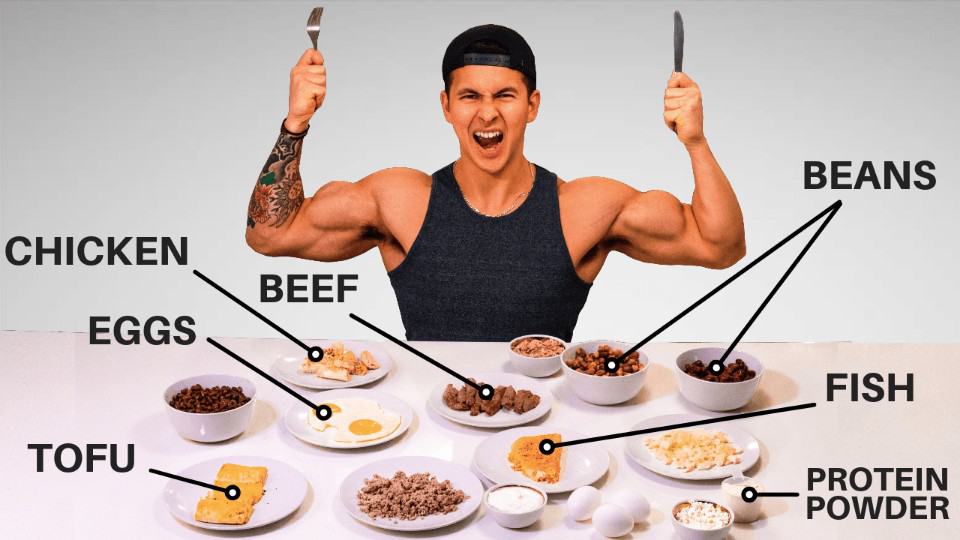How Much Protein Is Needed to Build Muscle?
How Much Protein Is Needed to Build Muscle? – Depending on your weight, degree of physical activity, fitness objectives, and other factors, different amounts of protein are required to grow muscle. However, there are general guidelines that can help you calculate how much protein you need to consume:
- 60 kg Body Weight: For someone weighing 60 kg who actively exercises and wants to build muscle, the recommended daily protein consumption ranges from 1.2 to 1.5 grams of protein per kilogram of body weight. This means that a 60 kg person should consume about 72 to 90 grams of protein per day. idn poker 88
- 70 kg Body Weight: For someone who weighs 70 kg, the recommended amount of protein to build muscle ranges from 84 to 105 grams of protein per day. idn poker
It’s crucial to keep in mind that these are merely estimations, and that each person’s requirements for protein may differ. If you have specific needs or if you’re unsure about how much protein you should consume, it’s best to consult a nutritionist or healthcare professional. poker

Protein’s Role in Building Muscle
The primary component used to construct your muscles is protein. When you do weight training or resistance training, your muscles experience microtrauma or minor damage. During the recovery process, your body needs protein to repair and rebuild the damaged muscle fibers. This is why adequate protein consumption is important for those who want to build muscle. pafikebasen.org
Protein also plays a role in maintaining nitrogen balance in the body. A positive nitrogen balance is necessary for optimal muscle growth. If protein intake is sufficient, the body can maintain a positive nitrogen balance, which means that the amount of protein taken in is greater than the protein lost.
High Protein Foods to Help Build Muscle
Some high-protein foods that can help you in building muscles are as follows:
- Chicken Meat: Chicken is a source of animal protein that is low in fat and high in protein. Chicken skin should be avoided to reduce saturated fat intake.
- Fish: Fish like salmon, tuna, and other fatty fish are high sources of protein and contain omega-3 fatty acids that are good for health.
- Eggs: Eggs contain complete protein and also contain healthy fats and vitamins and minerals.
- Nuts: Nuts such as almonds, peanuts and black beans are good sources of plant-based protein.
- Tofu and Tempeh: Tofu and tempeh are high-protein, low-fat plant-based foods that are great for muscle building.
- Low-Fat Dairy Products: Low-fat milk, low-fat yogurt and cottage cheese are good sources of protein and calcium.
- Nuts: Nuts such as almonds, peanuts and black beans are good sources of plant-based protein.
Make sure you incorporate a variety of protein sources in your diet for maximum benefits. Also, pay attention to the consumption of carbohydrates and healthy fats to fulfill your energy needs during training and muscle recovery.